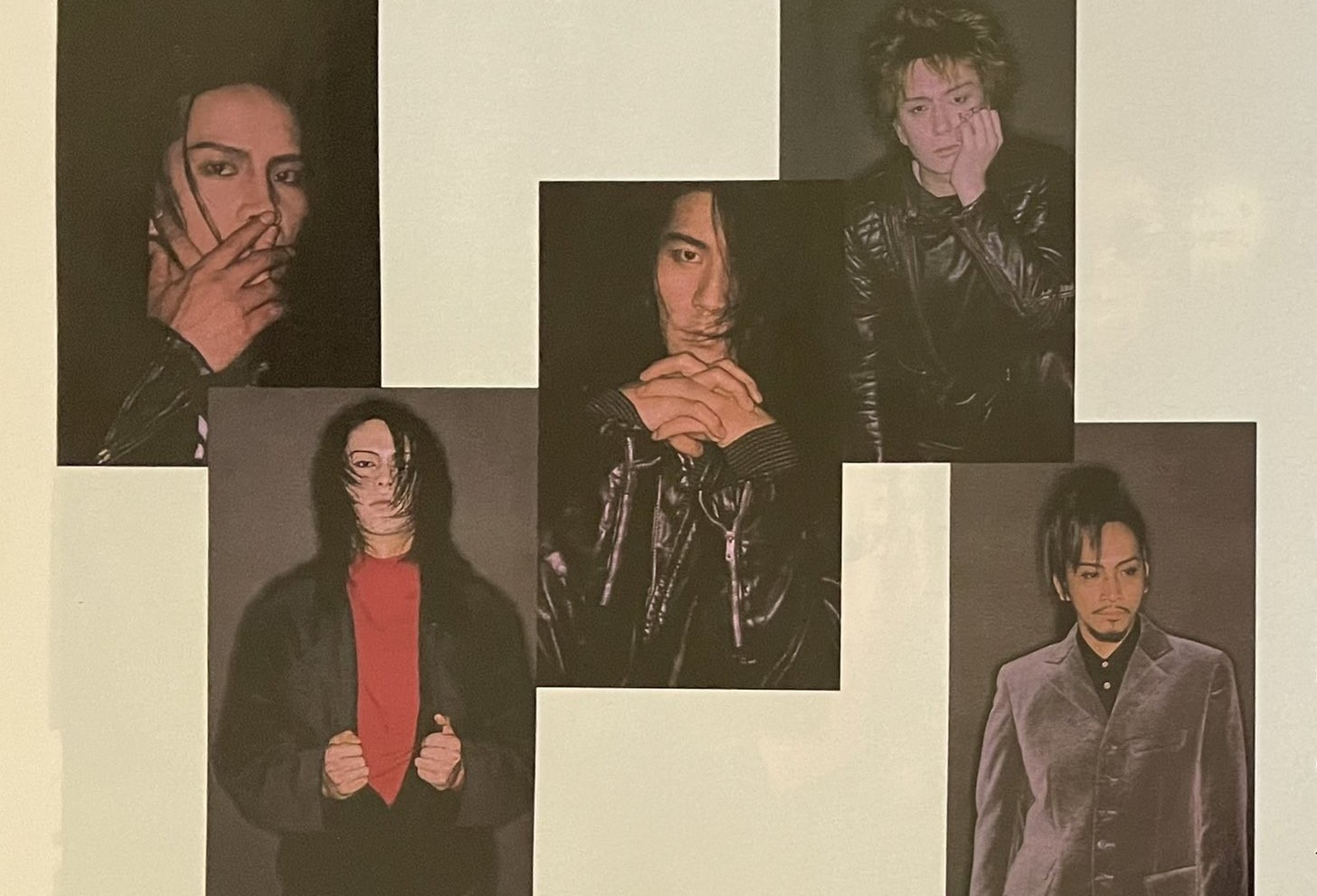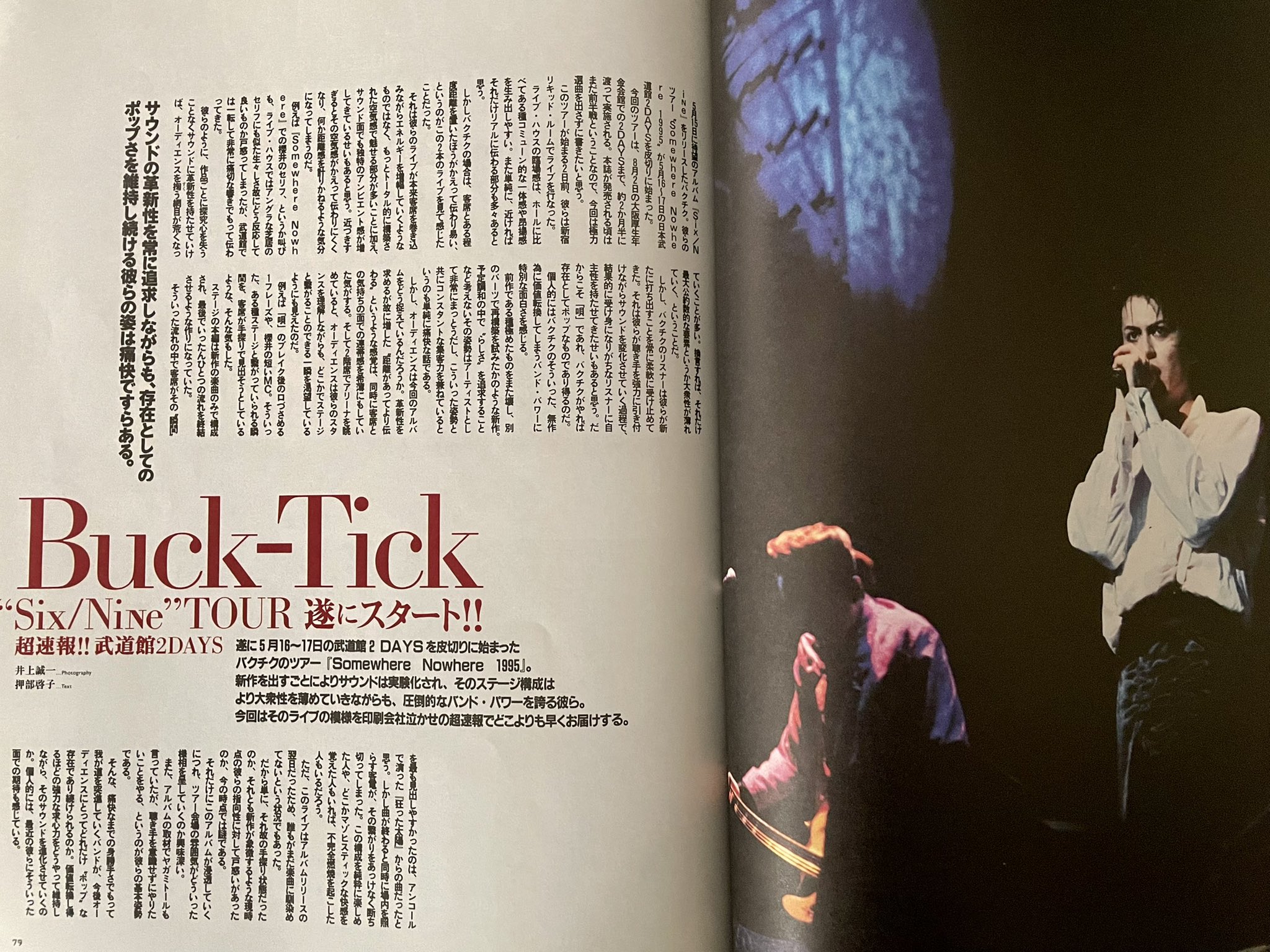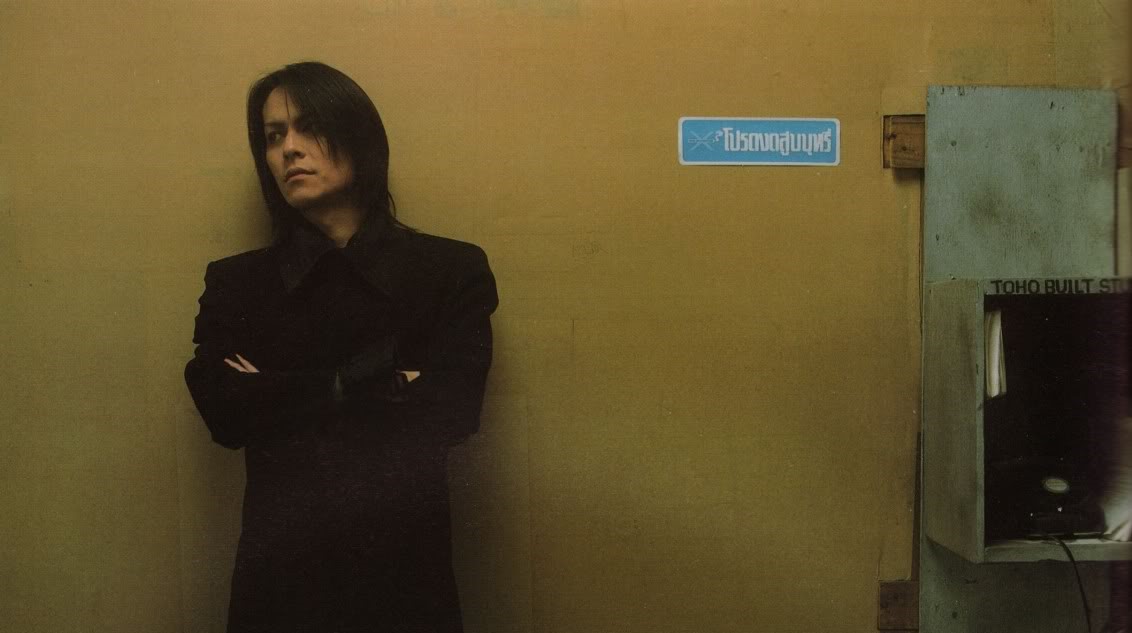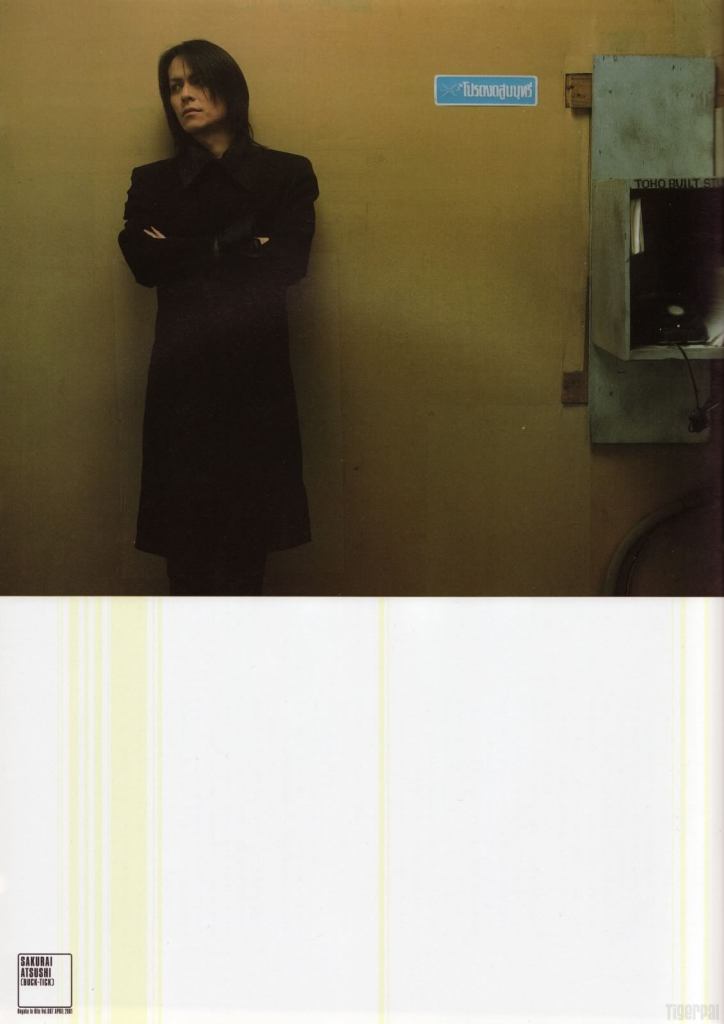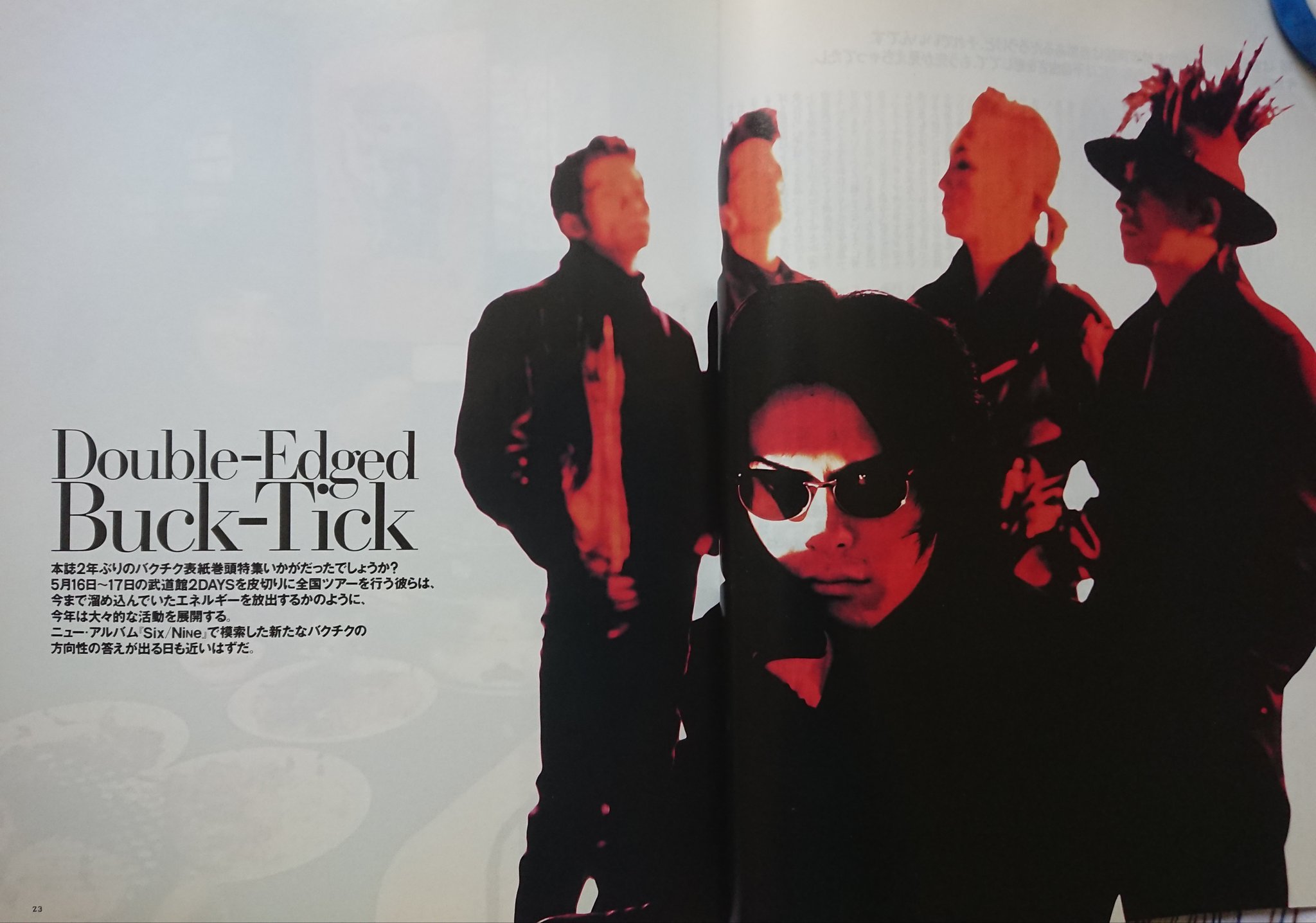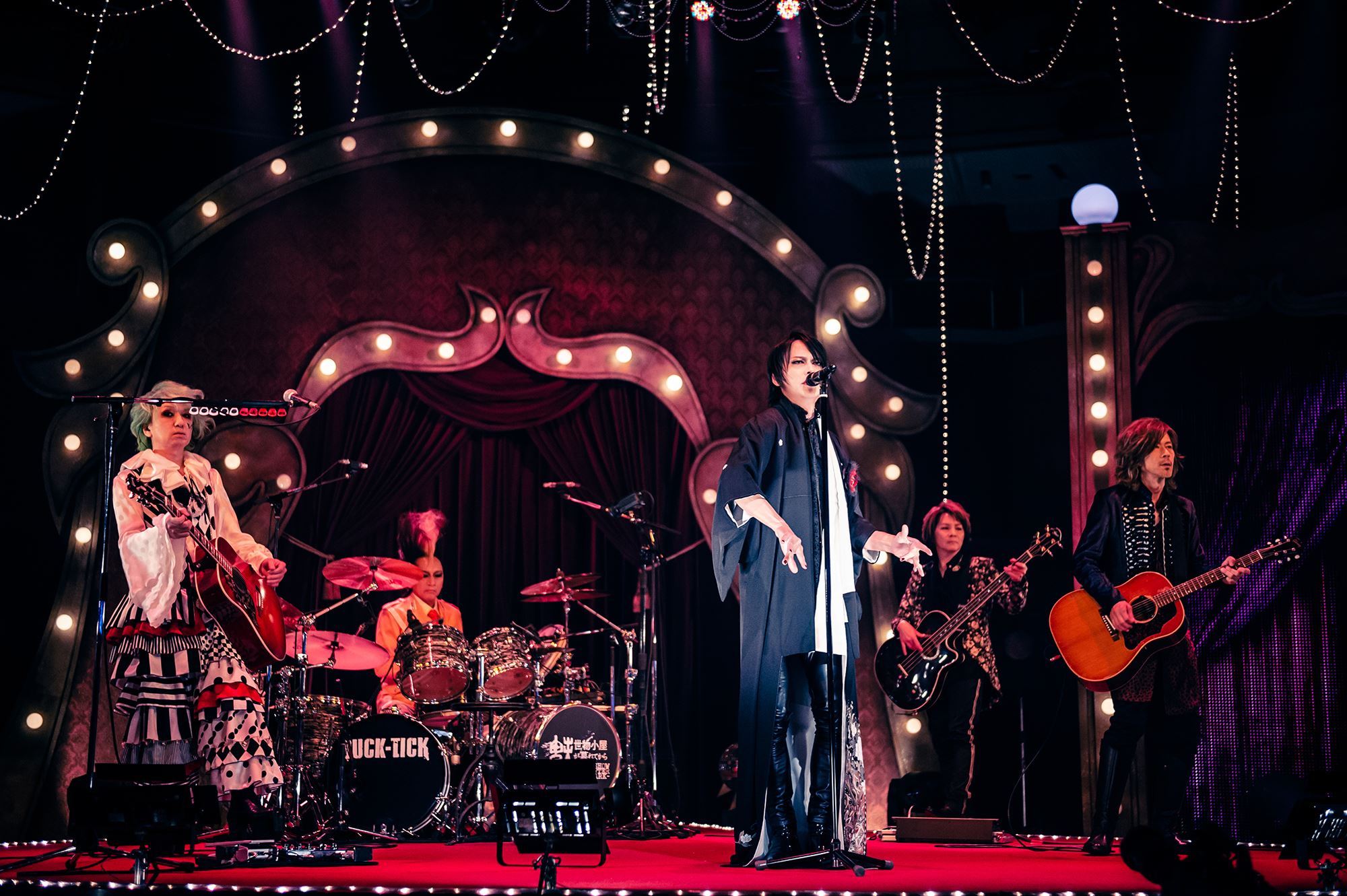
The ornaments are incendiary*.
── Sakurai Atsushi Mesmerises!
GQ JAPAN
September 2021
Photos 奥脇孝典 Takanori Okuwaki@UM
Styling 清水ケンイチ Kenichi Shimizu
Hair&Make-up 山路千尋 Chihiro Yamaji@Fats Berry
Having turned 55 this year, Sakurai Atsushi who made his major debut in 1987 as the vocalist of BUCK-TICK is a forerunner of the rock scene even now. This rock legend who “have always been fascinated by the New Romantic movement” charms us bewitchingly, clad in his latest look.
Coat ¥649,000 | Sweater ¥209,000 | Pants ¥132,000 (All from TOM FORD), Sunglasses ¥55,000
〈TOM FORD EYEWEAR /All the above are from Tom Ford Japan〉
Necklace ¥242,000 | Bangle ¥1,320,000 | Ring ¥286,000 〈All from TIFFANY & CO.〉
“The architectural tailoring is reminiscent of British brands, and the way it fits the body was really cool. I also liked the combination of the metal buttons and gold jewellery.”
Music rejuvenates me
A glossy shirt and slim-cut jeans, along with a pair of heeled boots. Sakurai-san showed up at the studio in an all-black ensemble. The moment he came in, he introduced himself with, “I’m Sakurai from BUCK-TICK.” There were, however, no mannerisms suggestive of the impetuous performances he puts on stage. He was mild-mannered and his tone, courteous. “It’s been a while since I last did a fashion photoshoot, but I had fun,” he said.
“My fashion is really, simply, black. I feel at ease when I wear black, and somehow I look sharper as well, so part of it is that it’s easy for me, and like putting on armour, when I wear black and slip on my boots, I’d naturally get into the zone.”
The hallmarks of BUCK-TICK when they debuted were heavy makeup and flamboyant outfits. But where did that come from?
“We’ve been influenced by 80s punk and New Romantic music, artists like David Bowie and Sex Pistols, Culture Club and all that since we started out as an amateur band, so we learned and imitated them with the makeup and the music. Putting on makeup gets me into the zone before we go on stage and perform in front of everyone. That stretch of time gives me such a sense of fulfillment. Back then, we’d be told that men aren’t supposed to wear makeup, but now, we’re at a time when there’s no need to decide that “men have to be this way”, everyone is free [to be as they please]. I think this trend of enjoying your own life is something good.”
Last year marked the 35th anniversary of the band’s formation. Still rocking at 55 years of age, the one thing that keeps Sakurai-san’s unchanging style alive is music.
“I drink and there are times when I neglect my health, but music is what rejuvenates me. Music is the only secret behind my energy cycle (lol). Because of the COVID-19 pandemic, I’ve come to think of the day-to-day life that I’ve led up until now as a miracle, so all I hope is to perform as many concerts as I can, and to keep making music for as long as it is possible.”
Jacket ¥583,000 | Pullover ¥117,700 | Pants ¥506,000 | Three-strand necklace (Top) ¥162,800 | Necklace (Middle) ¥138,600 | Necklace (Bottom) ¥113,300 | Belt ¥244,200 | Bracelet ¥73,700 | Ring (Right hand) ¥24,200 each (est. price) | Ring (Left hand) ¥40,700 〈All from DOLCE & GABBANA〉
“The glitter from the embellishments and accessories designed into the set-up brought about a positive feeling and made it an enjoyable look to shoot.”
Coat ¥512,600 | Shirt ¥57,200 | Pants ¥171,600 | Stole ¥36,300 〈All from YOHJI YAMAMOTO〉
“I actually became a fan of Yohji in my 30s and there was a period of time when I bought the pieces for my own collection. It’s been a while since I’ve worn [clothes from Yohji Yamamoto] but it’s impressive to see that there is this consistent attitude in the craftsmanship that hasn’t changed since that time. I occasionally visit the Aoyama store, so it’d be cool if I get to bump into Yohji-san one day.”
Jacket ¥517,000 | Shirt ¥330,000 〈Both from GIORGIO ARMANI〉
Necklace with brooch ¥4,730,000 〈MIKIMOTO〉
“Matching Armani’s signature velvet texture with pearls creates an air of nobility, doesn’t it? This is the first time I’ve worn pearls but it’s got an elegance and an aura of tranquility, I think they can be used on a variety of occasions.”
PROFILE
Sakurai Atsushi
Born 1966 in Fukuoka City, Gunma Prefecture. Made his major debut as a member of BUCK-TICK in 1987. The band has remained active ever since with no change in member line-up. Legends in Japan’s rock scene, they celebrated their 35th year together in 2020 and continue to be an influence of many artists’ to this day. Their latest single, Go-Go B-T TRAIN is set to be released on September 22 while their live Blu-ray & DVD, TOUR 2020 ABRACADABRA ON SCREEN/ABRACADABRA LIVE ON THE NET is now available. Their national tour, TOUR2021 Go-Go B-T TRAIN will kick off on October 3.
Notes:
* This was a challenge. The title was 装飾がバクチクする (soushoku ga bakuchiku suru). You’d probably recognise バクチクする as the phrase that was often used as a naming pun for BUCK-TICK. It was translated as “explosive”, “crackling”, “fire cracker” (this doesn’t work as a verb) but in this case I chose “incendiary” because the whole piece wasn’t exactly as… bombastic as the other words might imply. The clothing prices though…
Translation: Yoshiyuki
Source: GQ JAPAN








